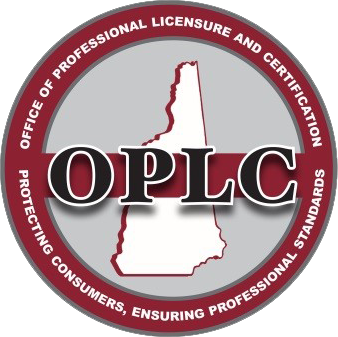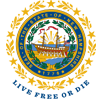Board of Manufactured Housing Guide to Resolving Disputes
A Guide to Resolving Disputes Between Park Owners and Residents in Manufactured Housing Parks.
This pamphlet is meant to serve as a guide only. It is not intended to replace or supplement any administrative rules or statutes which govern the Board's jurisdiction or procedure.
Disputes and Resolutions
Disputes between a park owner or a tenant are bound to surface from time to time. When such an event occurs it is troublesome for both the park owner and the tenant. Resolution of the problem is the only way to restore the peace and harmony that everyone desires.
What procedure should one follow when such a dispute occurs? First, the aggrieved party, park owner or tenant, must make the other aware of the problem. Sometimes one or the other of the parties are completely unaware that a problem exists. It is recommended that the aggrieved party contact the other and communicate the grievance along with a recommended remedy for resolution. The aggrieved party should document their grievance in writing explaining their position. Hopefully a satisfactory solution will be concluded. If the aggrieved party fails to receive a satisfactory resolution and wishes to pursue the matter further, he or she may want to pursue a remedy before the Board of Manufactured Housing.
Board of Manufactured Housing
The Board of Manufactured Housing was established by the Legislature so that disputes regarding provisions of RSA 205:A-2, 7, & 8, and manufactured housing park rules could be resolved at a reasonable cost with presentations made by laypersons. The Board does not have jurisdiction over evictions, rents, or rent increases.
Who Enjoys Standing With The Board Of Manufactured Housing\
Only a tenant or a park owner or operator has standing with the Board of Manufactured Housing. Tenant associations have no legal standing with the Board of Manufactured Housing; however, the board may accept testimony from their representatives. In other words, only a tenant or a park owner or operator may initiate a complaint. Any tenant or park owner or operator wanting to place a complaint before the board must do so as an individual even if a group of tenants are plagued by the same grievance. The board may choose to join several complaints during a hearing proceeding, but even though these complaints may have been joined, the resolution of these complaints are deliberated and decided on an individual basis.
The tenant or park owner or operator can represent him or herself before the Board or may be represented by an attorney or any other authorized representative.
Procedure For Filing A Complaint
Prior to filing the complaint with the Board, a final effort to resolve the matter is required. At least five (5) days prior to filing a complaint, the potential complainant must make a good faith attempt to resolve the matter by notifying the other party in writing of the conditions, which would constitute the basis for the complaint. Any complaint filed with the Board must include a sworn certification that the complainant has complied with this request. It is recommended that a certified or registered letter, return receipt requested, be mailed to the potential respondent stating the grounds for the complaint including an offer for settlement. Failure of the parties to reach a satisfactory settlement constitutes reason to file the complaint.
The cost of filing a complaint is $25.00. This fee may be waived for good cause. Complainants may represent themselves or they may choose to have an authorized representative or attorney present their case.
You may request a complaint form by mail, by telephone by email, by visiting the Board's website, or by fax:
Board of Manufactured Housing
121 South Fruit Street
Concord, New Hampshire 03301
(603) 271-2219
(603) 271-6990 (fax)
ricky.wisler@oplc.nh.gov
Complete the Complaint Form stating with specificity to reasons supporting your complaint. After completion of the Complaint Form mail or deliver it to the Board along with a complete copy of the applicable manufactured park rules. Also mail a copy to the other party.
Filing A Complaint
The Board of Manufactured Hosing was established by the Legislature so that conflicts regarding provisions of RSA 205-A:2, 7, and 8 and manufactured housing park rules could be adjudicated at reasonable cost with presentations made by lay persons. The cost of filing is $25.00. This fee may be waived for good cause. Complainants may represent themselves or they may choose to have an authorized representative or attorney present their case.
After completion of the Complaint Form and prior to filing the complaint with the board, a final effort to resolve the matter is required. At least five (5) business days prior to filing a complaint a potential complainant must make a a good faith attempt to resolve the matter by notifying the other party in writing of the conditions which constitute the complaint. Any complaint filed with the Board must include a sworn certification that the complainant has complied with this request.
It is recommended that a certified or registered letter return receipt requested be mailed to the potential respondent stating the grounds for the complaint including an offer for settlement. Failure of the parties to reach a satisfactory settlement constitutes reason to file the complaint.
Receipt of Complaint By The Board
Upon receipt of a complaint is filed, the other party will be notified by the Board Program Assistant I and given the opportunity to file a written response within 14 days of receipt.
Upon receipt of a complaint and a response the Board will review the complaint and response to determine that all requirements have been satisfied and the Board will, within 60 days, set a hearing date. In some cases the parties may agree to use mediation to resolve their dispute prior to the hearing.
All communications to the Board shall be addressed to the board Program Assistant I and not to any individual board member.
The Hearing
The Board will establish its jurisdiction in the matters to be heard and receive any motions prior to presentation of evidence. The Board may rule on motions or take the motions under advisement.
At least 5 days before the hearing the parties shall exchange a list of all witnesses to be called at the hearing and a list of all documents or exhibits to be offered as evidence at the hearing.
The hearing affords the complainant and respondent opportunity to present evidence pertinent to their position for deliberation and resolution by the Board. Such evidence may be presented by personal testimony, witness testimony, documents, photographs or affidavits. You will need at least twelve (12) copies of your evidence: including ten (10) copies for the Board, one (1) for the other party and one (1) for yourself, except that additional copies of photographs, maps or other documents that are not easily copied are not required.
The Board will hear the complainant's witnesses and evidence first. The respondent will be given the opportunity to question those witnesses. The Board will then hear the respondent's witnesses and evidence. The complainant will then be given the opportunity to question the respondent's witnesses. Each party may then present any rebuttal testimony or evidence beginning with the complainant. Following the conclusion of the evidence each party will be allowed to make a brief closing statement beginning with the respondent. Members of the Board may ask questions of all witnesses and parties during the hearing.
The party asserting a proposition shall bear the burden of proving the truth of the proposition by a preponderance of the evidence.
All requests for findings of fact, rulings of law, and hearing memoranda shall be submitted to the Board before the close of the hearing.
The Board's Decision
When the Board makes its decision, an order will be made in writing and will include findings of fact. The findings of fact will be accompanied by a concise and explicit statement of the underlying facts supporting the findings. The parties will be notified by mail of any decision or order.
A decision of the Board may be appealed by either party by applying for a rehearing and appealing to the Superior Court for the county in which either party resides.
If no timely appeal is taken the decision of the Board becomes final. The Board files a certified copy of any final decision with the Clerk of the Superior Court in the county of residence of the complainant. The Clerk of Court enters judgment of that decision, and that judgment may be enforced as with any final judgment of the Superior Court.
What Specific Matters Can The Board Hear?
The Board has limited jurisdiction and can only hear matters listed in RSA 205-A:2, 7 & 8. These matters include:
- Charging more than 3 months rental as an entrance fee of any fee unless for services actually rendered; or
- Unreasonably interfering with a tenant's right to sell their unit at a price of their choosing or require the purchaser to remove the unit from the park; or
- Unreasonably limiting the tenants use of For Sale signs; or
- Charging a fee or commission unless the park owner has acted as agent; or
- Requiring more than 3 references from a purchaser; or
- Discriminating against purchasers based on age or family status unless such restriction were included in the rules or lease of the seller; or
- Impose a non-refundable fee for processing an application for tenancy that exceeds $125, unless the park owner provides the applicant with an itemized breakdown of the application fee. An application fee may exceed $125, provided that it is reasonable.
- If the park rules require a pre-sale inspection of the home, fail to provide written notice to the park tenant, within 14 calendar days of receiving written notification from the tenant that he or she is going to attempt to sell his or her home in place, of all repairs and improvements that the park owner requires in order to approve the sale. If the park rules do not require a pre-sale inspection of the home and the tenant makes a written request for a specification of the repairs and improvements that the park owner requires for approval of an on-site sale, the park owner shall have 14 days to provide a written list of the required repairs and improvements. The park owner's response to the tenant is valid for 90 days after which time if a sale has not been completed, the park owner may require additional improvements or repairs of any defective conditions which have arisen since the park owner's initial response. The park owner may not require:
- The repair or removal of anything inside the home that does not adversely affect the infrastructure of the park.
- Compliance with an aesthetic standard if the standard relates to physical characteristics, such as size, original construction materials or color; provided however that nothing in this subparagraph shall prevent a park owner from requiring compliance with aesthetic standards related to maintenance or repairs of deteriorating or defective features of the home, or the removal of a structure or fixture which was added to the home by the seller without the permission of the park owner.
- Fail to provided written notice to the prospective buyer, within 14 calendar days of receipt of the prospective buyer's completed application for tenancy, setting forth the reason for the park owner's refusal to approve or indicating the park owner's approval of the prospective buyer as a park tenant. If the prospective buyer is denied the park owner shall, upon request of the seller, send a notice of the denial to the seller that does not disclose the reason therefore.
- Requiring a unit to be removed from the park upon sale, if it is otherwise safe, sanitary and aesthetically consistent within the park; or
- Requiring tenants to purchase services from the park; or
- Preventing tenants from purchasing services from persons other than park owners; or
- Requiring any tenant to purchase from any particular person unless the requirement is imposed at the time of initial leasing of the lot; or
- Failing to disclose all terms of the tenancy including rental, utility, entrance and services charges; or
- Making or attempting to enforce any rule which:3. Requiring a unit to be removed from the park upon sale, if it is otherwise safe, sanitary and aesthetically consistent within the park; or
- Requiring tenants to purchase services from the park; or
- Preventing tenants from purchasing services from persons other than park owners; or
- Requiring any tenant to purchase from any particular person unless the requirement is imposed at the time of initial leasing of the lot; or
- Failing to disclose all terms of the tenancy including rental, utility, entrance and services charges; or
- Making or attempting to enforce any rule which:
- Imposes extra charges for minor children or charge in excess of $10 per adult per month where the number of adults exceeds the limit established by rules; or
- Requiring tenant to get prior permission for an overnight guest to stay in the park; or
- Imposing unreasonable pet charges; or
- Requires a tenant to dispose of personal property which they were previously permitted to own; or
- Transferring the cost of underground system maintenance or repair to tenants; or
- Failing to provide a manager available for emergencies; or
- Failing to provide copies of rules to tenants or fail to provide 90 days notice of rule changes; or
- Failing to respond to a written request for copy of current park rules by Consumer Protection Bureau; or
- Requiring a security deposit of more than one (1) month's rent; or
- Forcing tenants to purchase equipment or under skirting from the park.




